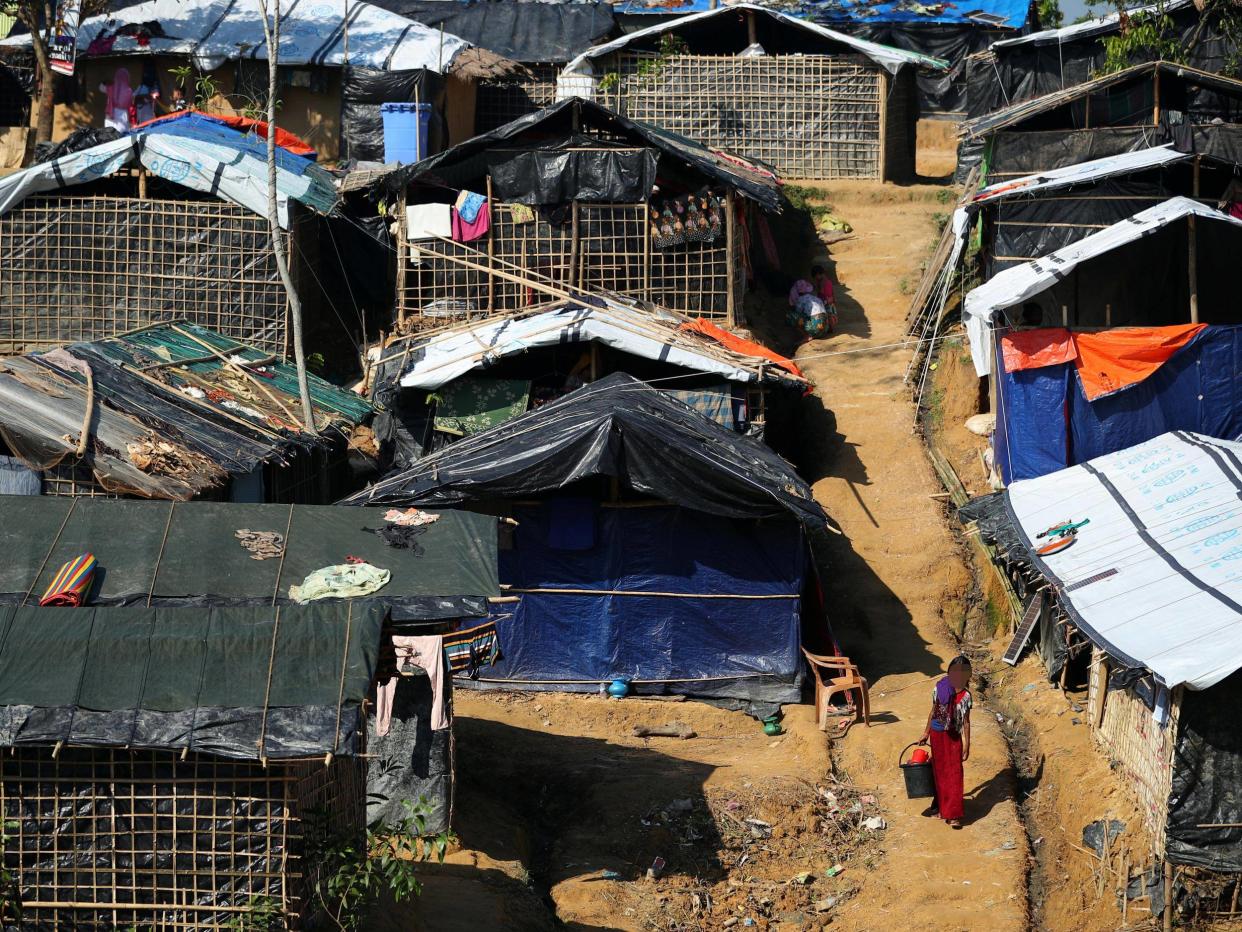We can’t let Priti Patel’s resignation distract us from our duties towards Rohingya refugees

Last week, while 22,000 people were tracking in slow motion every move of Priti Patel’s return flight from Kenya to resign, I joined Rohingya refugees at the Kutupalong Camp near Cox’s Bazar, Bangladesh, to see the scale of the crisis first hand, hear directly from those affected, and understand the reality on the ground.
The situation is hard to convey in words. The International Organisation for Migration estimates that 823,805 Rohingya people now need urgent support. Some 611,000 have crossed into Bangladesh from Myanmar since the end of August – a mass exodus that represents one of the largest population movements in living memory, anywhere. It is, as the UN Refugee Agency told me, like establishing a city the size of Manchester overnight – but one with no infrastructure, housing, water, sanitation or tools for survival.
The numbers are frightening. But it is the details that are most devastating. The recently reopened school I visited, supposed to be a rare source of hope, falls short of demand, meaning children can learn only in shifts. Two whole families, who I saw on the way out, live together under a single piece of tarpaulin. I met a community leader who was born in the same camp a generation ago – living his entire life without a permanent home.
There was the 25-year-old man I met who, more than anything, wants citizenship, residency, and the chance to make a new life; the long queues everywhere for food, shelter, and clothing packages; the sea of makeshift shelters, stretching as far as the eye can see. It was simply heart-wrenching.
But amid the desperation, there is also hope. The response of the humanitarian community and the care shown by aid workers on the front line stands in stark contrast to the Rohingya’s traumatic experience at the hands of the military in Myanmar.
Aid workers rarely seek recognition, but their incredible efforts in these hardest of circumstances must be truly celebrated. There was real hope too in the agency, energy, and resilience of the Rohingya refugees I met, all of whom had fought hard for their own survival, and won.
There is much that needs to happen. In the camp itself, more physical space is urgently needed as the humanitarian operation enters the next phase. Bangladesh, Myanmar and the international community must quickly work for a solution to give the Rohingya the full citizenship they deserve.
Like Jordan or Uganda, the country of Bangladesh has taken in close to a million refugees in a short period of time, putting incredible stress on its limited resources. If Bangladesh is to deliver a progressive refugee policy under such strain, the international community must step up its support. The UK must play its part, by continuing to pledge generously and building international political will.
There will be no quick or easy solutions. But the UK – with a very significant footprint in Bangladesh through the Department for International Development – has a key role to play in navigating the complex solutions that are needed over the coming weeks.
To do that, parliamentarians, the media and the new Secretary of State for International Development all need to keep our eye firmly on the ball in Bangladesh, rather than on Patel’s self-inflicted distraction in Whitehall. It is time for the spotlight to shine not on the disgraced politician, but on the Rohingya crisis.
Roberta Blackman-Woods is a Labour MP for the City of Durham and Shadow Minister for International Development

 Yahoo News
Yahoo News 
